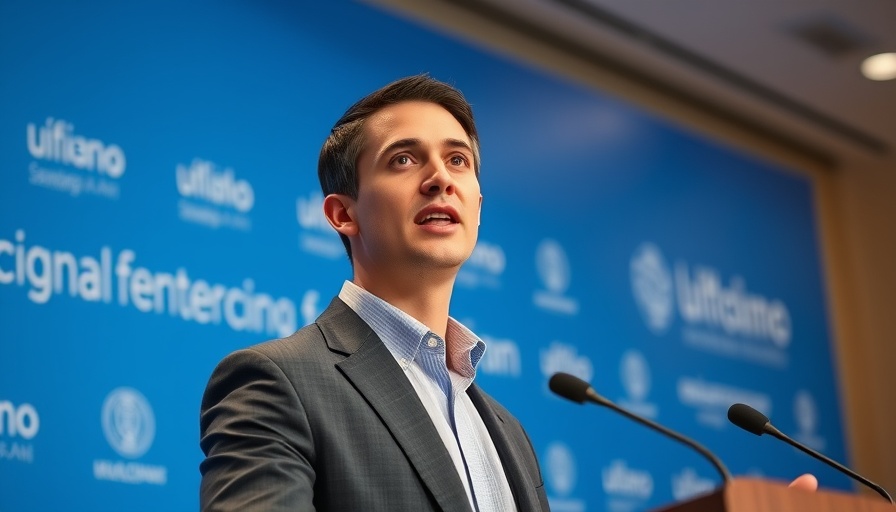
Anthropic’s Shift: A Controversial Investment Decision
In a move that has sparked both intrigue and controversy, Anthropic CEO Dario Amodei has revealed in a leaked memo that the AI company will pursue investments from Gulf states, specifically the United Arab Emirates and Qatar. This decision shifts the company's previous alignment away from these authoritarian regimes—raising serious questions about ethics, accountability, and the broader implications for the tech industry. In his memo, Amodei expressed awareness of the moral complexities, stating, “Unfortunately, I think ‘No bad person should ever benefit from our success’ is a pretty difficult principle to run a business on.”
The Race for AI Capital: A Driving Force
The urgency of securing funding has never been more critical as AI companies strive to remain at the forefront of technological advancements. In particular, Amodei noted that there is an excess of capital in the region, estimating it to be “easily $100B or more.” The need for this funding is underscored by competitors like OpenAI, which has already tapped into significant amounts of investment from Middle Eastern entities. This competitive landscape places immense pressure on Anthropic to align its financial strategies with these lucrative opportunities, potentially at the expense of its founding principles.
A Balance Between Ethics and Opportunity
The stark contrast between the goal of advancing societal welfare through AI technologies and the sourcing of funds from authoritarian regimes raises the significant issue of ethical investment. Investors might seek to scrutinize how their capital influences the development and deployment of technologies that could support oppressive regimes. Amodei’s comments hint at a vulnerable acknowledgment of this hypocrisy: “Accepting money from authoritarian regimes would lead to accusations of hypocrisy.” This ethical dilemma is further exacerbated as tech companies face increasing scrutiny regarding the societal implications of their innovations.
The Historical Context: A Shift in Investment Tactics
In the previous year, Anthropic made it clear that it would not accept funds from Saudi Arabia due to national security concerns following the exposure of several political tensions in the region. However, as tech giants like Google and Microsoft continue their relationships with these states, the pressure mounts for Anthropic to revise its financial strategies to maintain competitive advantage. This latest move comes amid a broader trend of Silicon Valley increasingly engaging with foreign investments, implicitly normalizing access to funds whose sources may not align with democratic values.
Implications for Investors: Navigating the New Landscape
For savvy investors, Anthropic’s pivot toward Gulf state investments offers a unique insight into the complexities of modern finance. Understanding how political dynamics can influence investment strategies is crucial. As companies seek capital to develop groundbreaking technologies, the availability of funds from less scrupulous sources demonstrates a vital need for diversification strategies that incorporate both ethical considerations and robust financial planning.
Embracing Change: The Future of AI Investments
Looking ahead, investors must delineate their values and financial objectives. Do they prioritize returns over ethical considerations, or do they seek a balance that reflects their social responsibilities? The unfolding drama around Anthropic illustrates the duality of modern investment landscapes. Individuals and institutional investors must examine their portfolios while remaining vigilant about the broader implications of the companies in which they choose to invest.
A Call to Action for Investors
As the conversation around investment ethics evolves, investors should equip themselves with knowledge to navigate this new terrain. Now is the time to reassess investment strategies, considering not only potential financial returns but also the impact of those investments on global governance and ethics. Employing comprehensive financial planning—including wealth management and ethical investing strategies—can enable individuals to achieve financial independence while aligning their investments with their values and principles.
 Add Row
Add Row  Add
Add 




Write A Comment